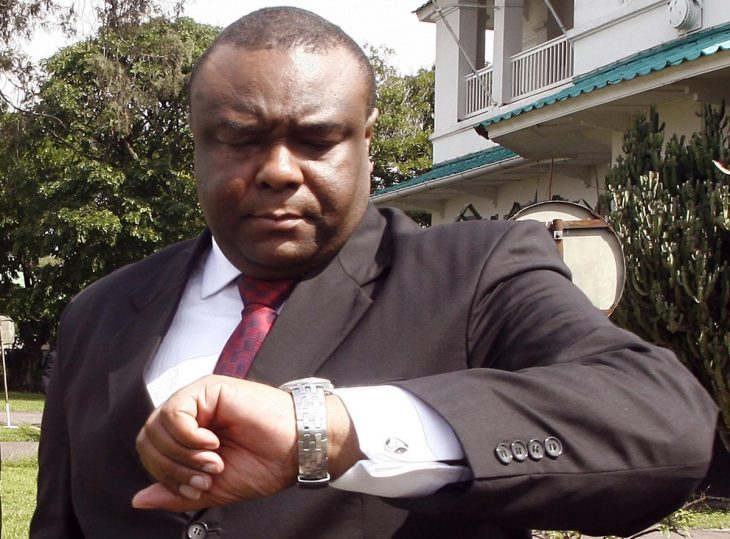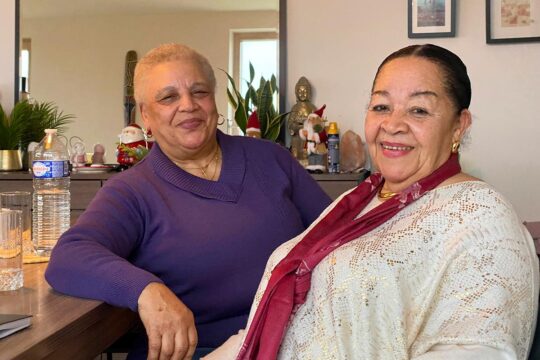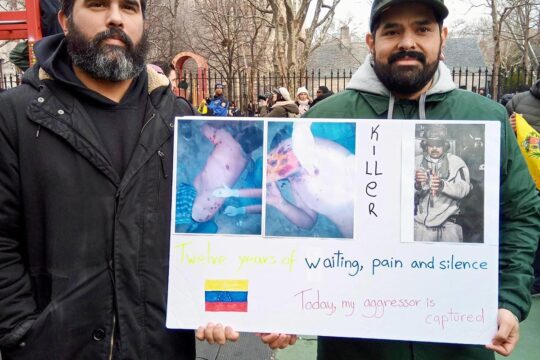It might sound like the storyline of a bad thriller (dibs can be claimed to the author if ‘Black Mirror’ is interested). But this is real life at the international courts. Jean-Pierre Bemba, a former Congolese vice-president and erstwhile warlord has been trying, since he was acquitted of crimes against humanity and war crimes last year at the International Criminal Court (ICC), to get his assets back, and to pay his debts.
Bemba asks for a third of the ICC’s budget…
His lawyers Peter Haynes and Kate Gibson have gone back and forth with court’s administrators and judges. But now, they’ve up the ante and their client has filed for compensation, saying “the Court acted negligently in seizing and freezing his property but failing properly to manage it or even account for it” and asking for no less than 68.6 million EUR: 26.2 million for damages and legal costs and for 42.4 million for damage to his property. All told its more than a third of the court’s annual budget. His lawyers allege the trial itself “was a parody of justice”, citing a judgment “littered with mistakes”, the prosecution bringing “a case it knew to be untrue” and the way that the witness tampering case against Bemba and his first set of lawyers was handled by the judges “removed any objective appearance of fairness”.
… to become “an ambassador for peace” in CAR
But wait for the plot twist: “He proposes to give any compensation for losing ten years of his life, to victims in the Central African Republic (CAR),” his lawyer Peter Haynes told JusticeInfo, “to provide meaningful reparations for victims of this conflict… and become an ambassador for peace”.
It was back in May 2008, as the Congolese politician was being arrested, that Bemba’s property and bank accounts in Belgium, Congo, and Portugal were frozen on orders from ICC judges. The property reportedly included bank accounts in his own and his wife’s name, their home in Brussels, a villa and a boat in Portugal. Other property seized but not frozen included six planes in Kinshasa, a couple more villas, a Boeing 727 aircraft and a river cruiser.
Thijs Bouwknegt researcher at NIOD Institute and assistant professor at Amsterdam and Leiden universities, isn’t too surprised by the extent of the ICC’s haul – Bemba’s father was very rich with reported Heineken brewery connections. In various court documents, many details are redacted. But there’s enough detail in there to for most Hollywood directors.
During the trial, the court’s Registry, which deals with practical matters, was ordered by judges to give an advance to Bemba’s defence team – about EUR 30,000 a month - because he couldn’t access his own frozen wealth. Later Bemba’s lawyers said that their client was able to access some accounts and even cooperated with the court: in May 2014, €2 million was transferred to the Registry from Bemba’s bank account in Cape Verde, which hadn’t been frozen since the country wasn’t an ICC member. Now his team point out that the court was required to properly manage other assets to preserve their value. If not for him, then for the victims who would have been paid if he were convicted.
Mr Bemba’s assets? “Simply allowed to rot”
The ICC’s own reports detailed by Bemba’s lawyers show lack of clarity over details of the property, lack of expertise and lack of follow-up: they note that the ICC itself acknowledges “overlaps and inefficiencies and a lack of clarity as to internal processes when dealing with cooperation requests involving complex legal issues”. “Mr Bemba’s assets over a ten-year period were quite simply allowed to rot” says Mr Haynes.
Last November the judges rejected Bemba’s request to order Belgium, the Democratic Republic of Congo, and Portugal to simply unfreeze his assets. They also decided not to order the Registry to give Bemba all the information they have on his frozen assets. The Registry had argued the situation was “complicated” because Bemba owes the court money which had already been paid to his lawyer, and a EUR 300,000 fine for witness tampering. More juicy plot lines.
So, does B have any chance realistically of getting compensation?
First of all, as Bouwknegt notes, at the ICC, money is tight: “This comes a bit at a delicate and uncomfortable time, when judges are demanding more pay and better pension schemes, there are ongoing cases of damage claims [before the International Labour Organization] by former and current personnel over financial injury suffered from the ICC's reorganization, and then there is of course the Trust Fund for Victims that operates on a shoestring”.
Haynes though points to article 85 of the ICC’s own statute: “when this court was set up, it was set up knowing that it might have a liability to pay out sums to people who were wrongfully convicted or victims of miscarriages of justice…if they haven’t got insurance for this then frankly that is shockingly negligent”.
International justice commentator based at the university of Luxembourg, Owiso, says it’s important to see the two aspects of the claim separately – firstly on the assets: “International courts/tribunals don't have a lot of useful experience dealing with frozen assets and management of assets generally” and, “the secrecy and general lack of transparency with which the Registry has treated the question of Bemba's assets leaves a lot to be desired”. So, depending on what the response is to that part of Bemba’s claim, there could be a serious problem for the court.
“Unlikely to succeed”
But Owiso is more skeptical when it comes to a compensation claim about the trial and the provisional detention. Bemba would “have to prove that his prosecution was malicious, and also perhaps that the trial chamber went along with it” and considering that the appeals chamber has already said that “the trial chamber indeed misapprehended and misapplied the law” but did not say “the trial chamber or the prosecution was out to maliciously convict Bemba”, any claim for compensation, says Owiso, “is unlikely to succeed”.
Bouwknegt agrees. “Although in Dutch courts,” he says, “you would actually make a big chance for some kind of reparation, even if it was only the fees for lawyers etc., if you were detained for a decade”. But examples from other international courts are not encouraging. Rwandan businessman Protais Zigiranyirazo (known as Mr. Z) was acquitted at the ICTR. He tried to argue that the court should give him a million dollars in compensation for detention time. His claim was denied. Former Rwandan minister Andre Rwamakuba, who was acquitted after eight years in detention also had his request for damages rejected (although he was awarded a small amount for a violation of his rights).
“After Bemba, what are Gbagbo et Blé Goudé going to demand?”
And of course, there would be a potential domino effect says Bouwknegt: “If Bemba gets money, and if it is a lot, this will open up an expensive precedent at the ICC. What are [former Ivorian president] Gbagbo and [youth leader] Blé Goudé going to demand if the appeals chamber upholds their acquittal?” So, even if you’re acquitted, even if you’re allowed to leave the Hague, even if you declare yourself an ambassador for peace, it doesn’t matter whether you’re rich and powerful or not, in this thriller, there will be always be a plot twist.







